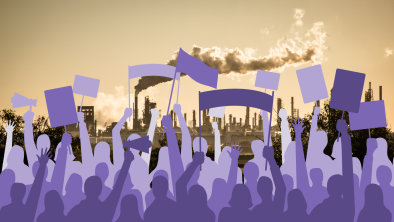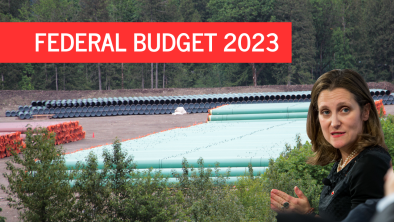Ship carrying 69 containers of garbage arrives in Vancouver after journey from Philippines
Global News

The long diplomatic standoff over a mountain of garbage has finally come to an end.
A ship carrying an infamous load of Canadian trash that had been rotting in the Philippines since as far back as 2013 arrived at a port south of Vancouver Saturday morning.
The Anna Maersk, carrying 69 containers of Canadian garbage and e-waste, docked at Deltaport near the Tsawwassen ferry terminal just after 7 a.m.
Authorities say the containers will be unloaded and held there before being moved to the Metro Vancouver waste-to-energy facility in Burnaby, where it will be incinerated over fears of contamination.
“It’s a bit of a unique material,” general manager of solid waste service for Metro Vancouver Paul Henderson said.
“We’ve had to work through safe operating procedures for how to receive this, because it’s been sitting in the Philippines for so long.”
The Canadian garbage arrived in the Philippines in 2013 and 2014, falsely labelled as plastics for recycling.
Inspections later revealed that much of what was inside the containers was regular trash, including dirty diapers, kitchen waste and electronic items.
The garbage set off a political row between the two countries, culminating in a threat by Philippine President Rodrigo Duterte to send it back to Canada himself.
“Prepare a grand reception,” he said at the time. “Eat it if you want to.”
Protesters also took to the streets in Manilla, calling on Canada to remove the garbage from the city’s shores.
Canada missed the president’s May 15 deadline to remove the garbage and Duterte recalled the Philippines’ ambassador and consuls from Canada.
The garbage left June 1 and was transferred onto the Anna Maersk on June 8 in Taiwan for the voyage across the Pacific Ocean.
The cost to Canada is $1.14 million for shipping and another $375,000 for the garbage to be burned in the Metro Vancouver incinerator, which regularly manages about 25 per cent of the region’s garbage.
The trash will be sorted into the pit along with the other waste the facility manages, and burned in installments over the next week.
Burning the trash will create electricity that will later be sold to BC Hydro, Henderson said.
The standoff over the garbage has shone a spotlight on Canada’s problems in dealing with its waste and recycling, and overseas countries’ growing unwillingness to accept it.
China banned imports of overseas waste in 2018, and the Philippines has suggested it may well do the same in the wake of this incident.
Other countries like Malaysia that once accepted waste exports could also follow suit.
Canada, meanwhile, has begun sending more of its recycling to the U.S. to be processed.
In a statement to Global News Saturday, Environment and Climate Change Canada said amendments to its waste export regulations in November 2016 now require exporters to define hazardous waste.
A permit is then required from the ministry to export that hazardous waste, which is only granted if the receiving country agrees.
“At the time the export [to the Philippines] took place in 2013, there was no legal requirement for the Canadian exporter to notify Environment and Climate Canada and to provide information about the origin about the waste,” the ministry said.
Peter McCartney, climate campaigner for the Wilderness Committee in Vancouver, called it “disgusting” that Canada still sends its garbage and recycling to developing countries.
“It’s embarrassing,” he said. “We pride ourselves on being such a green, forward-thinking country, but the trash people aren’t sorting properly goes into the recycling and is shipped abroad. It’s a bad look for Canada.”
McCartney and other climate activists say Canada needs to drastically overhaul its recycling program to process more materials within its own boundaries, or reduce and eliminate hard-to-recycle items altogether.
The federal government has indicated it is exploring a ban on single-use items, including plastic bags and food containers, to be implemented by 2021.
McCartney said that ban would be a strong first step, and stressed that Canada does sort the majority of its recycling properly.
As for the rest of it, he said it should no longer be sent abroad while Canadians live in relatively clean cities and towns.
“I’ve seen kids picking through piles of trash to find valuables to sell,” he said. “To think some of that garbage may have come from Canada is horrifying.
“We shouldn’t be using third world countries as our garbage bin, and I think we need to work hard to repair that relationship.”
—With files from Sarah MacDonald and Nadia Stewart, and the Canadian Press
© 2019 Global News, a division of Corus Entertainment Inc.


